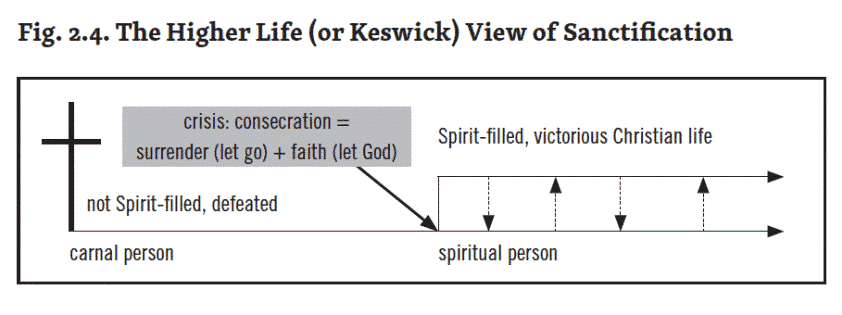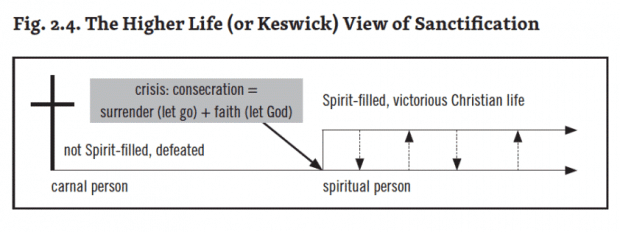The following is a guest post written by Andy Naselli, author of No Quick Fix: Where Higher Life Theology Came From, What It Is, and Why It’s Harmful.
A silver lining of theological controversy is that it can help you refine how you understand what the Bible teaches. In this case, analyzing higher life theology will help you better understand the Christian life. Higher life theology is harmful. I know from experience. That’s why I wrote my first PhD dissertation on it in 2006. My new book, No Quick Fix, is a more accessible version of that more detailed and academic work. I have stripped out most of the academic jargon and rewritten it to make it more inviting for thoughtful lay people.
Higher life theology (or “let go and let God” theology or Keswick theology) divides the Christian life into two stages and encourages those in the first stage to advance to the second:
We must listen carefully before we critique, so I spend Part 1 of the book explaining where higher life theology came from and what it is. Then in Part 2 I explain ten reasons higher life theology is harmful:
- Disjunction. It creates two categories of Christians.
- A form of perfectionism. It portrays a shallow and incomplete view of sin in the Christian life.
- A form of quietism. It emphasizes passivity, not activity.
- A form of Pelagianism. It portrays the Christian’s free will as autonomously starting and stopping sanctification.
- Misreading. It does not interpret and apply the Bible accurately.
- False Assurance. It assures spurious “Christians” they are saved.
- Methodology. It uses superficial formulas for instantaneous sanctification.
- Addiction. It fosters dependency on experiences at special holiness meetings.
- Abuse. It frustrates and disillusions the have-nots.
- Spin. It misinterprets personal experiences.
Praise for No Quick Fix
“This book packs an extraordinary amount of useful summary, critical analysis, and pastoral reflection into short compass. The book will do the most good, however, if it encourages readers in a more faithful way to pursue that holiness without which we will not see the Lord (Hebrews 12:14).”
—D. A. Carson, Research Professor of New Testament, Trinity Evangelical Divinity School; President and cofounder, The Gospel Coalition
“Andy Naselli provides us with a thorough explanation of Keswick theology and uncovers its biblical and theological weaknesses. Naselli’s work is judicious but kind. The Keswick movement has done much good, and we are allies and friends in the gospel of Jesus Christ. Still, iron sharpens iron, and Keswick theology has too often produced discouragement and despair with its exalted and finally unbiblical view of sanctification. Naselli’s work helps us to see why Keswick doesn’t measure up, and he provides a more satisfying and biblically faithful alternative.”
—Thomas R. Schreiner, James Buchanan Harrison Professor of New Testament Interpretation, Professor of Biblical Theology, and Associate Dean of the School of Theology, Southern Baptist Theological Seminary
“Andy’s work on Keswick theology is first-rate. This is a model of scholarship serving the church. His analysis of Keswick’s history and his tight theological work on sanctification are extremely valuable. I enjoyed this book. I learned from this book. I will be able to help my congregation as a result of reading this book.”
—Kevin DeYoung, Senior Pastor at Christ Covenant Church (Matthews, North Carolina) and Assistant Professor of systematic theology at Reformed Theological Seminary (Charlotte)
Pick up your copy of No Quick Fix today!
* * *
Andrew David Naselli (PhD, Bob Jones University; PhD, Trinity Evangelical Divinity School) is associate professor of New Testament and theology at Bethlehem College & Seminary in Minneapolis and an elder of Bethlehem Baptist Church. He is the administrator for Themelios and has authored and contributed to numerous books and articles including Conscience: What It Is, How to Train It, and Loving Those Who Differ with J. D. Crowley.






